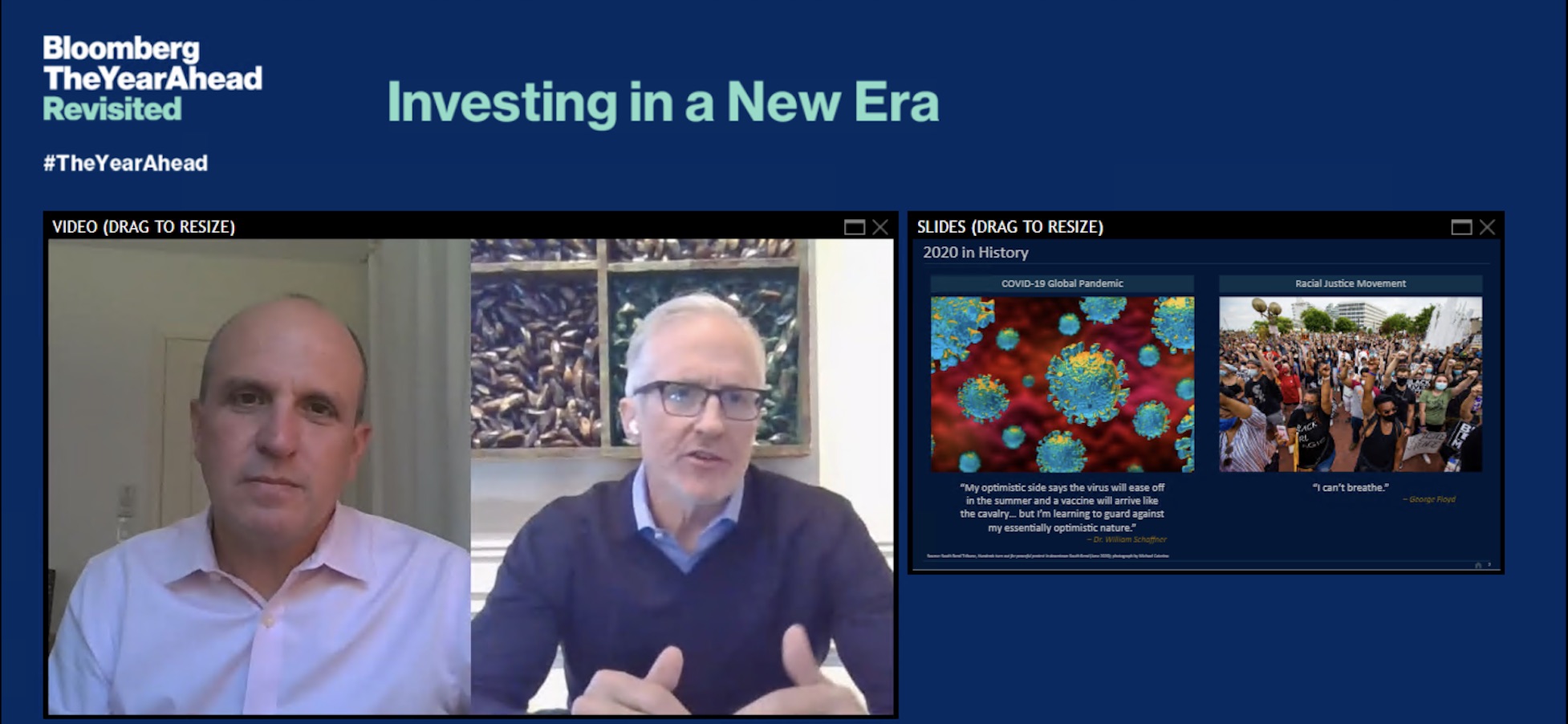TPG’s Jim Coulter joined Bloomberg’s Jason Kelly on June 17, 2020, to present highlights from his annual investor presentation, and discuss how investors should view the second half of the year, as the investment outlook for 2020 has fundamentally changed due to two key issues: the coronavirus pandemic and the racial justice movement.

The Racial Justice Movement
Coulter stressed the importance of the racial justice movement first. “We’re still in the middle of a societal and personal journey,” says Coulter. A few of his early thoughts:
- It feels different this time. Protests are taking place in 35,000 cities. Polls show an increase from 40% two years ago to 70% today of Americans who now agree that social injustice is a major problem.
- It has grabbed global attention. “We’re in the midst of a social and political revolution that’s likely to be expressed in many ways,” says Coulter.
- We’re seeing more immediate action in the business world. In particular Coulter noted two cultural bellwethers: sports and Hollywood. “Here the news is nothing short of gratifying and amazing,” said Coulter, from NASCAR banning displays of the Confederate flag to Premier League’s new Black Lives Matter jerseys.
- There’s early evidence of consumers engaging as well. Recent polls showed 70% of consumers indicating that they would take a company’s action (or inaction) around racial injustice into account with their buying behavior.
The Coronavirus Pandemic: A Wartime Event
Coulter noted that at the beginning of the pandemic, we were looking at models as if this were an economic event – but he pointed to a greater likeness to a wartime event.
In a normal recession, you don’t see things like Ford Motor Company re-purposing their factories to produce ventilators, or celebrities holding concerts for frontline workers, Coulter said.
So if this is a wartime event, what do we need to know about wartime economies? Coulter outlined six key points:
- War economies tend to go on longer than people expect
- There is massive dispersion of sector performance – some sectors do extremely well, while others do horribly
- The government becomes a big player
- People mobilize in a war
- After wartime, you tend to go into a recession before a recovery
- Major societal changes often happen in a post-war economy
And human tendency is to fight the last war. As the pandemic highlighted areas of underinvestment, Coulter sees opportunities in four areas:
- Life sciences
- Healthcare technology
- E-commerce infrastructure
- Global supply chains
Work From Home: An Evolution, Not a Revolution
Coulter warns about the rush to work from home forever, and doesn’t see the future as a death knell for office space. Polls show the majority of workers don’t want to work from home forever, for example, even if some companies have floated the possibility.
He does see certain sectors fundamentally changing, however, due to the increased adoption of web conferencing and other remote technologies – in particular, education and telemedicine.
The above points are just highlights from the discussion with Jim Coulter. Access the full session on-demand here for more details.